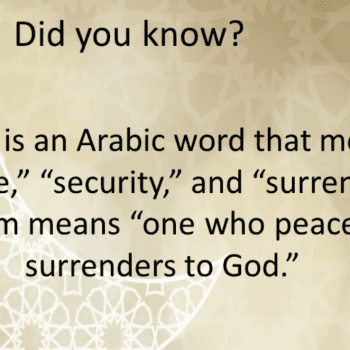 Before I address the concerns of the many, many people who have reached out to me since my impending Church Discipline was announced, let me just say:
Before I address the concerns of the many, many people who have reached out to me since my impending Church Discipline was announced, let me just say:
It’s Advent.
This season is far more important Christian news than my discipline. Furthermore, the event of my Church Discipline is not nearly as significant as the pressing issues of poverty, oppression, inequality, war, despotism, or the tragedy of social isolation and loneliness – especially during Christmas.
And, it’s certainly not the worse thing that’s happened to me. I’m absolutely sure that I’ll be fine and well and that many good things are ahead of me regardless of the outcome.
But, here are the questions that keep popping up:
1. Do you want to be excommunicated?
2. If you have already left the church this church discipline is no hardship and utterly expected?
3. Why not just resign?
Let me first clarify the reason for my church discipline:
The reason for my Church Discipline is that in addition to my Anglican baptism, I’ve been public about the fact that I will not bend my spiritual knee to the President of the Church of Jesus Christ of Latter-day Saints as a prophet. That’s because Prophets don’t come from the religious elite. They emerge from the margins, condemn the religious elite, and return to the margins when their job is done. Their title doesn’t make their words prophetic. Their words make their prophetic role uncomfortably clear. What prophets say is usually received with the fear and fury of the privileged, and relief from the underprivileged.
So, I’ll know when Russell Nelson is being a prophet.
He’ll be a prophet when he liquidates the church’s assets in order to take care of the poor and needy. He’ll be a prophet when he collapses the religious hierarchy; when he quits his job and heads to the margins from where he’ll speak to the center about its corruptions. He’ll be a prophet for the ages when he then disappears from public view without having taken a cent for his troubles.
But, most Mormons seem not to have the same qualification – and that’s fine for them. I’m not trying to argue with anyone’s convictions. I just claim the right to hold and express my own.
So, here are my responses to the above question
Do I want to be excommunicated?
On principle, I do not. I am of the opinion that resolving the question of my continued belonging and membership in the LDS Church through a Church Discipline that is overseen by a theologically untrained lay clergyman is preposterous.
Many Mormons have normalised Church Discipline as a common practice of boundary maintenance and an acceptable reaction to dissent. I think that depends on the church. Roman Catholics certainly don’t nullify baptisms, confirmations or annul marriages upon excommunication. The LDS version of excommunication is, in non-fundamentalist Christian terms, completely outrageous.
So,
Do I want to be excommunicated? No.
Am I willing to make any concessions to prevent my excommunication? No.
Will I be sad if I’m excommunicated? Yes
Question Two: You’ve already left the church. How is this a hardship?
As I said above, it’s very poor Christian practice to resolve church membership with church discipline.
If I had proceeded to ordination or held an ordained position in another church I think there might be some reason to suggest that I had left or that I formally should.
But, I have never said, ‘I have now left the Church of Jesus Christ of Latter-day Saints.’ People try to ascribe the epithet ‘former-Mormon’ to me and that simply doesn’t fit.
Sure, I’ve taken Sabbaticals in order to do the messy work of de-construction and re-construction. But, up until June this year, I was technically active. I currently have few qualms about serving my Mormon community (as long as I can ditch the curriculum when its exegetically poor). I currently serve an Anglican community because they are nicer and have shown that they are trusted companions in my spiritual formation. But, to my mind, my church communities have never been in competition and neither have my baptisms. I’ve been double dipping and even triple dipping churches for years with tremendous spiritual benefit.
Furthermore, I didn’t join another church. I received a baptism and confirmation into the Body of Christ. My baptism made me free to take my worship and service anywhere I like in the Christian communion. My LDS Church baptism and confirmation are ordinances that affirm my membership only in the church and are associated with my exclusive ‘joining’. But, I happen to think that denominationalism and sectarianism are self-serving spiritually diminishing scandals.
So, I don’t feel as though I have ‘joined’ another church. I happily serve another community and am counted among the Parish, but I have made it clear to both my Stake President and Bishop that I will take a calling in the LDS Church (if I can work it in around my other church commitments). Additionally, my Anglican priest has certainly not required my renunciation of my LDS membership.
My point of difference with the LDS Church is that I’m a theologian. I find no spiritual comfort in dogmas or doctrines because I have seen how ‘knowing’ and ‘certainty’ can lead to great spiritual violence and abuse. Unfortunately, the LDS Church has made it clear to me that theology is unwelcome. What they wish for is an affirmation of its orthodoxies, (whatever they are from week to week) and I can’t give all of those affirmations because some of them are untenable at worst and muddled at best.
In any event, church discipline is violent. And that’s a profound hardship.
Why not just resign?
I hold my early formation and my associations and connections in the LDS Church to be very dear. I am Mormon. I was baptised, raised and nurtured in this tradition. I have loved and have served this community for most of my life. So, why should I? I’m not currently pleased with it but that’s a poverty-stricken reason to resign from it.
Secondly, and more importantly, I have a very active Mormon husband who loves the thought of our eternal marriage. To resign would be disrespectful to his faith and would communicate my ambivalence to his own convictions. While I don’t always agree with him or his beliefs it sends a poor message to him that I would be willing to flush it all away because I got into a scrap with a Bishop.
And finally,
Henri Nouwen beautifully offers the thoughts of my heart:
“For most of my life I have struggled to find God, to know God, to love God. I have tried hard to follow the guidelines of the spiritual life—pray always, work for others, read the Scriptures—and to avoid the many temptations to dissipate myself. I have failed many times but always tried again, even when I was close to despair.
Now I wonder whether I have sufficiently realized that during all this time God has been trying to find me, to know me, and to love me. The question is not “How am I to find God?” but “How am I to let myself be found by him?” The question is not “How am I to know God?” but “How am I to let myself be known by God?” And, finally, the question is not “How am I to love God?” but “How am I to let myself be loved by God?” God is looking into the distance for me, trying to find me, and longing to bring me home.”











